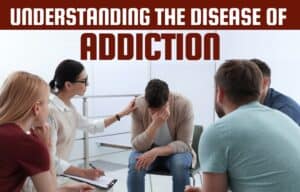
How is My Partner’s Addiction Affecting Me?
Addiction as a disease never discriminates against anyone. The only purpose it has is to degenerate and disintegrate where it has established its roots. ..
Addiction is a tiresome disorder where both families and patients struggle to come to terms with its long rein of treatment. While it is difficult for the families to detect the addiction disorder initially, seeing that patients would try to keep reality as far from home as possible, they slowly somehow build walls of denial, thinking that they will be able to manage the patient’s use of substance or alcohol.
In our language, the family’s denial and their actions are termed co-dependency. The patient don’t want to go for any rehab center for treatment. The patient is co-dependent on substance and family on the patient.
A co-dependent loved one is fixated on their patient’s sickness and is unable to separate himself/herself from the patient.
They are unable to derive pleasure from life as they have a strong belief that once the patient gets okay, they’ll enjoy things together. Sadly, they put their lives on hold.
They often showcase aggressive behaviours as they feel unsatisfied when they are unable to control the patient’s actions or his disease.
Inability to identify their own emotions as they often get mixed up with what their patient is feeling.
Entrapped in a vicious cycle of enabling and provoking behaviours, meaning sharing love and hate relationships with the patient.
Taking care of the patient and his actions like, he/she is a little child, holding oneself responsible for how the patient behaves and acts.
There are multiple stages of co-dependency as mentioned below;
As the co-dependent partner delves more into his/her patient’s disease, the more anxious they tend to become. They feel incapacitated to control the patient’s disease, going as far as using substances with the patient to keep them in check. As the patient’s disease progresses, the partner may end up making excuses for their patient’s actions and unconsciously enabling them more.
The co-dependent partner may start feeling more and more responsible for their patient’s state. They start acknowledging themselves as a pursuer, in charge or someone who threatens or becomes aggressive with patients to keep them from falling into the depths of addiction.
The co-dependent partner has fully adapted himself/herself to the role of caretaker of the patient. Slowly, emotions of anger and shame intensify and they start seeing themselves as “a victim in the story”, the one who left everything for their patient and are stuck in a situation and don’t understand the need of psychological help where they have zero control.
The energy levels have depleted, and the caretaker has built walls of resentment and anger towards the patients. Hatred for the patient has intensified and partners are unable to differentiate between the patient and his disease. Their own physical and psychological well-being has been compromised with years of struggle.
To save both the patient and himself, they must seek treatment from professionals, which can only be done if the co-dependent partners separate themselves from their patient’s needs and wants.
Being co-dependent on your patient is not something to be ashamed of. Many times, families are unaware of their actions and that is okay, but they must bring about awareness and identify their problematic behaviors. What is more important, is to build a healthy home where all of the individuals get a chance to thrive and that is only possible when you seek help from any best rehab center in India, even when you feel you don’t need it.

Addiction as a disease never discriminates against anyone. The only purpose it has is to degenerate and disintegrate where it has established its roots. ..

In recent times I have seen many of my clients resorting to self-harm …

Many a time, a family brings their patient to me, explaining how their patient despite the best of their efforts is not able to quit….

Stress is a functional part of life. Without stress, we might not be able to perform actively…
WhatsApp us